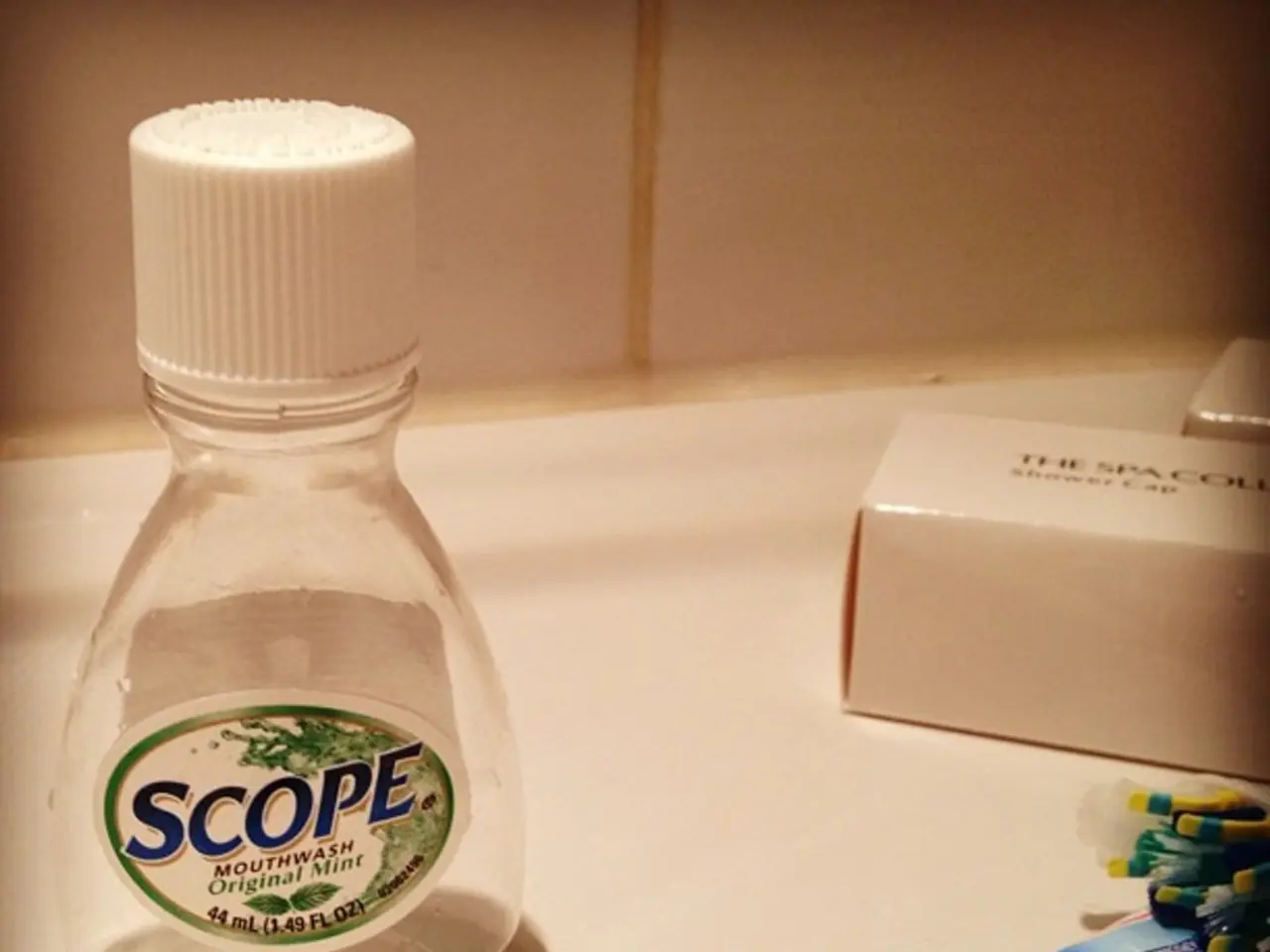Identifying Throat Irritations: Strep or Common Cold?
Distinguishing Between Sore Throat and Strep Throat: Key Differences and Importance of Diagnosis
Understanding the differences between a common sore throat and strep throat is crucial for prompt treatment and prevention of complications.
While a sore throat can be caused by viral infections, bacteria, dry air, allergies, or drainage from a runny nose, strep throat is primarily caused by the bacteria Streptococcus pyogenes (Group A streptococcus) [1][5].
Key symptom differences include:
| Feature | Sore Throat (usually viral or mild causes) | Strep Throat (bacterial infection) | |---------|-----------------------------------------|-----------------------------------| | Onset | Gradual onset of discomfort | Sudden onset of severe sore throat with pain on swallowing | | Fever | Mild or no fever | Fever over 101°F (38.3°C) common | | Throat appearance | Red or inflamed, sometimes with white patches if viral | Red throat with white patches or streaks of pus on tonsils; red and swollen tonsils | | Lymph nodes | Usually no significant swelling | Swollen, tender lymph nodes in the front of the neck | | Cough and runny nose | Common with viral sore throats | Usually absent; cough or runny nose suggests viral cause, not strep [3][4] | | Other symptoms | Hoarse voice, mild discomfort, nasal congestion | Headache, nausea, vomiting, stomach pain, sometimes a sandpaper-like rash (scarlet fever) [1][3] | | Complications | Rare | Potential severe complications if untreated: rheumatic fever, kidney disease, abscesses [1][3] |
Strep throat tends to have a more abrupt and severe presentation, with high fever, swollen lymph nodes, and distinct signs like white pus on tonsils without cough or runny nose, whereas a typical sore throat from viral causes tends to have milder symptoms, often gradually developing with cough or nasal symptoms [1][3][4].
Laboratory testing such as rapid strep tests or throat cultures is used to confirm strep throat since symptoms can overlap [1][3]. If strep throat is diagnosed, a healthcare provider can prescribe antibiotics for treatment [21].
In addition to medical treatment, managing symptoms at home can also help. This includes taking over-the-counter pain medicine like acetaminophen or ibuprofen, gargling with warm, salt water, sucking on ice chips, prioritizing rest, drinking warm liquids and plenty of water, and avoiding irritants like smoke or dust [26][24][25][27].
It's important to note that strep throat can be easily spread by sharing personal items with an infected person, having close contact with someone who's infected, or even through the air by sneezing or coughing [12]. Therefore, seeking treatment is not only essential for your own health, but also for preventing the spread of the infection to others [4].
In conclusion, recognising the key differences between a sore throat and strep throat is vital for prompt and appropriate treatment. If you suspect strep throat, it's crucial to consult a healthcare provider for diagnosis and treatment.
[1] Mayo Clinic. (2021). Sore throat. https://www.mayoclinic.org/diseases-conditions/sore-throat/symptoms-causes/syc-20367101 [2] Mayo Clinic. (2021). Strep throat. https://www.mayoclinic.org/diseases-conditions/strep-throat/symptoms-cause/syc-20355723 [3] American Academy of Pediatrics. (2019). Diagnosis and Management of Group A Streptococcal Pharyngitis. https://pediatrics.aappublications.org/content/144/Supplement_1/S1 [4] Centers for Disease Control and Prevention. (2021). Streptococcal Infections. https://www.cdc.gov/streptococcus/diseases.html [5] National Health Service. (2021). Sore throat. https://www.nhs.uk/conditions/sore-throat/ [21] American Family Physician. (2018). Diagnosis and Management of Group A Streptococcal Pharyngitis. https://www.aafp.org/pubs/afp/issues/2018/0415afp0255.html
- Health science plays a crucial role in understanding medical conditions such as strep throat and how they differ from common health issues like a sore throat.
- Ignoring the symptoms of chronic diseases like strep throat can lead to complications including rheumatic fever and kidney disease.
- Proper sleep is essential for workplace-wellness and your body's ability to fight off infections like strep throat.
- Medical tests like rapid strep tests or throat cultures can help confirm a diagnosis of strep throat, allowing for prompt treatments and therapies.
- Cancers and respiratory conditions can lead to serious health implications if left untreated, just like strep throat and other medical-conditions.
- Good digestive health can also contribute to a stronger immune system, making it easier for the body to combat infections like strep throat.
- Eye-health, hearing, and skin-care are all important aspects of health and wellness, as is maintaining a balanced diet and practice of fitness and exercise.
- Supporting mens-health, womens-health, and parents-health through awareness, education, and appropriate medical care is essential in managing conditions like strep throat.
- Regular check-ups and proper medical care can help catch autoimmune disorders and neurological-disorders early, before they become severe.
- Mental-health is an essential aspect of overall health, and seeking help for conditions like depressions or anxiety can aid in managing stress and improving the body's ability to fight infections.
- Proper nutrition and weight-management can help reduce the risk of developing cardiovascular-health issues and the onset of aging-related health issues.
- Medicare programs can provide access to crucial healthcare resources, including treatments like cbd oils and therapies for chronic conditions like strep throat and other medical-conditions.
- Preventing the spread of strep throat among children in schools and workplaces can be achieved through proper hygiene and avoidance of direct contact with infected individuals.
- Managing and treating skin-conditions like eczema or psoriasis can help prevent complications and improve overall health and wellness.




